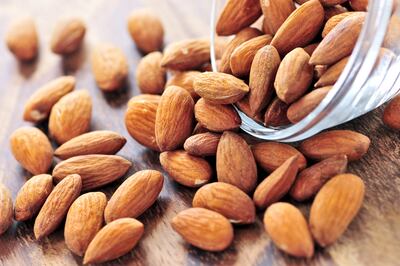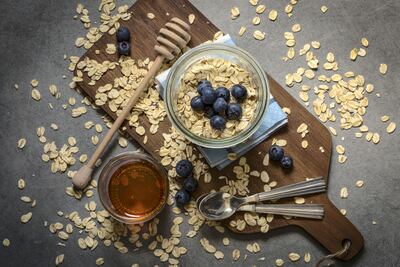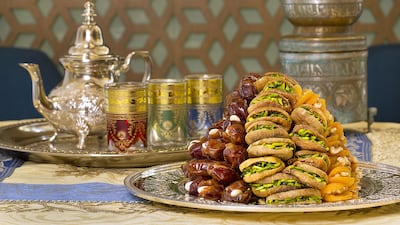The foods you eat during Ramadan can make a big difference to your energy levels. After fasting all day, there is often a temptation to overeat and load up on sugary drinks during iftar and suhoor, but you could be doing yourself a disservice.
Rahma Ali, a clinical dietitian at Burjeel Hospital Abu Dhabi, says that iftar and suhoor meals should be well balanced and contain items from each food group, such as vegetables, cereals, meat, dairy products and fruit.
“Fasting during Ramadan can improve one’s health, but only if done in a proper manner. If not, it can cause more harm than good. It is important to have self-control when you see a spread of appetising food. The key is to remember that Ramadan is a month to reap rewards and benefits, and increase your spiritual connection,” Ali says.
“Suhoor needs to be wholesome to provide enough energy to last during the long hours of fasting. It is important that the food you consume keeps you hydrated, so pay careful attention to the selection of food items during suhoor.
“And while suhoor is important, eating habits during iftar cannot be ignored. Hence, it is important during Ramadan to break the fast with a balanced diet ensuring that the essential nutritional needs of your body are met. These include sodium and potassium, which are lost due to sweating, especially during the hotter months.”
Here are Ali's suggestions for foods to eat and avoid during iftar and suhoor.
What to eat during iftar
Potassium-rich fruits
Potassium is necessary for the proper functioning of many of your body's systems. Some of its key roles include minimising cramps and maintaining fluid and electrolyte balance. Foods that are high in potassium include beans, dark leafy greens, potatoes, squash, yoghurt, avocados, mushrooms and bananas. Dates are nutrient powerhouses that are a good source of potassium and an excellent food to break your fast. A date not only helps you to hydrate quickly, but also gives you instant energy to make you feel rejuvenated after the long hours of fasting.
Sufficient fluids
Drink as much water or fruit juices as possible between iftar and bedtime to avoid dehydration.

Raw nuts
Almonds contain good fats which are essential, particularly when your body has been craving fats after the long hours of fasting. Raw nuts are perfect for iftar as they can help you to feel full and in control, without the need to binge.
Hydrating vegetables
Cucumbers, lettuce and many other vegetables are high in fibre and water. They not only help your body to feel cool, but they are also a great choice for keeping your skin healthy and avoiding constipation.
What to avoid during iftar
Carbonated drinks
Avoid drinking processed beverages and carbonated drinks, which are usually high in sugar, increasing your risk of obesity, and can cause bloating and gas, leading to indigestion. Stick to regular water and coconut water to quench your thirst.
High-sugar foods
High-sugar foods such as sweets and chocolates should be avoided as they contain very little nutritional value and are high in calories. They contribute to weight gain and can lead to health issues if consumed regularly.
Fried foods
Greasy and fried foods, such as fried dumplings, samosas, pastries and oily curries, should be avoided as they are loaded with fat and stored in the body as fatty tissue. Eating fatty foods after long hours of fasting can cause acidity and indigestion.
What to eat during suhoor
Protein-rich foods
Eggs are high in protein and other nutrients. They not only help you to stay full for longer, but they can also be made in several ways to suit your tastes.

Fibre-rich foods
Oatmeal is rich in fibre, which your body needs during suhoor. Soluble fibre turns to gel in the stomach and slows digestion, which helps to lower cholesterol and blood glucose, and keep you energised throughout your fast.
Calcium and vitamin-rich foods
Rich in calcium and protein, dairy products are a great source of nutrition. Opt for a yoghurt smoothie or choose a vanilla and honey milkshake to stay full and hydrated throughout the day.
What to avoid during suhoor
Simple or refined carbohydrates
These foods, such as sugars, white flour, pastries, doughnuts and croissants, provide satisfaction for only three to four hours and are low in essential nutrients.
Salty foods
An imbalance of sodium in your body can make you thirsty while fasting, so try to avoid salted nuts, pickles, crisps and foods that contain soya sauce.
Caffeinated drinks
Coffee has caffeine which can lead to insomnia and restlessness. In addition, it doesn't hydrate and can keep you longing for water the whole day.

